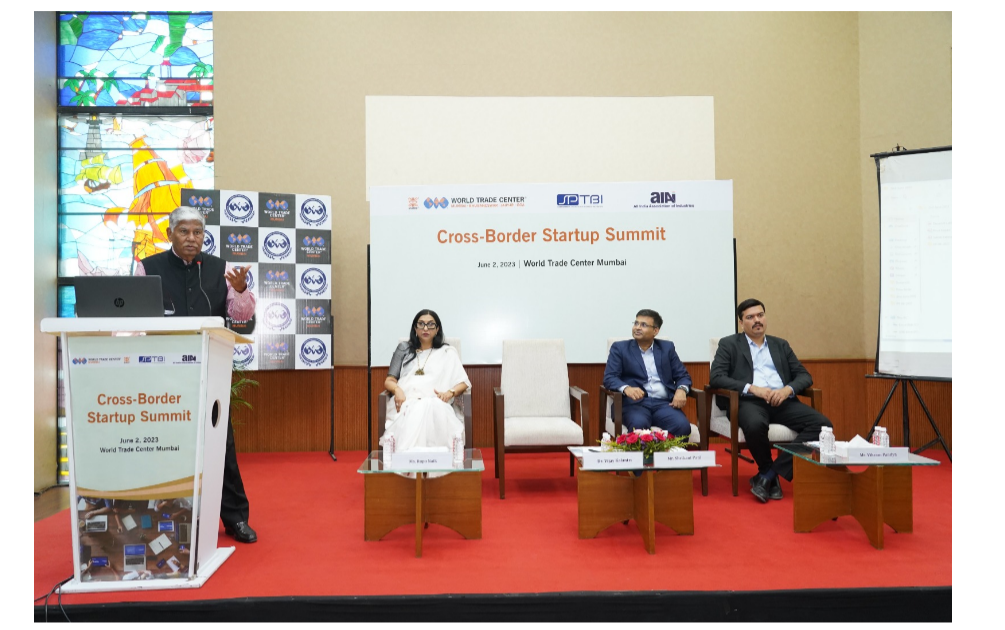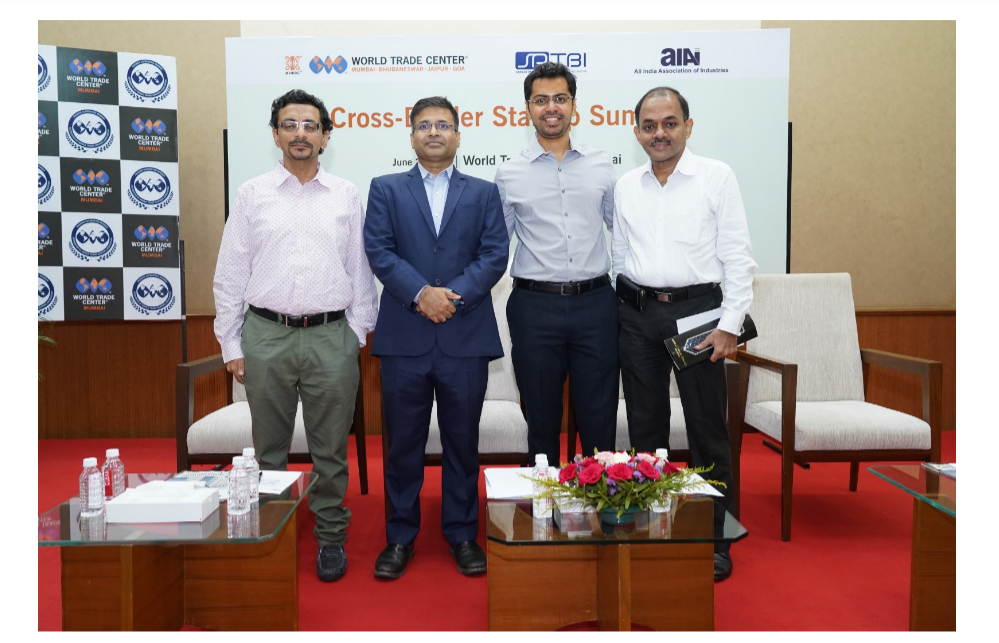- Home
- About
- Team
- About the President
- Mission
- Advisory bodies
- Associates
- Privacy Policy
- Terms and Conditions
- Cancellation, Returns & Refund Policy
- Pricing Policy
- Services
- Activities
- Events
- International Desk
- Sectors
- MSME
- Membership
- Publication
- Media
- Contact
India should address regulatory grey area in tokenomics to support startup funding
“Tokenomics is the emerging avenue for raising equity and debt funding or revenue-based funding by start-ups and asset owners in India. At present, this is a regulatory grey area. We need clear regulation, investor awareness and technology adoption to develop tokenomics in the country. Tokenomics refers to the fragmentation of real world assets into digital units or tokens, which can then be sold to investors through blockchain platform. Tokenomics helps various asset owners to raise funds from a broad base of investors, ranging from financial institutions to high networth investors. These digital units are also liquid as they can be traded just like stocks and bonds in the secondary market,” said Mr. Satish Kataria,Co-founder, Fandora, India’s first content Intellectual Property Tokenisation platform. Mr. Kataria was speaking at the Cross-Border Startup Summit organized by All India Association of Industries (AIAI), WTC Mumbai and Sardar Patel Technology Business Incubator.
Companies like Ryzer and Fandora have pioneered blockchain-based tokenized fund raising platform inIndia for real estate and entertainment sectors. Fandora is a platform where entrepreneurs from entertainment, books, music and sports industries can raise funds by converting their intellectual property into tokens. The market for creative-content based intellectual property in India is estimated at Rs. 17,000 crore. India has 1.2 lakh growth-stage startups and MSMEs that can benefit through this tokenized fund-raising platform.
Earlier in his welcome remarks, Dr. Vijay Kalantri, President, All India Association of Industries (AIAI) and Chairman – MVIRDC World Trade Center Mumbai suggested, “India needs a dedicated ministry for start-up ecosystem, which is facing various challenges such as slowdown in funding, stringent norms of angel taxation and complex procedures for doing business.”
Dr. Kalantri called for improving ease of doing business, capacity building support for growth-stage startups, easing angel tax norms for genuine startups and effective implementation of government schemes and incentives for startups.
Dr. Kalantri pointed out that the global recessionary outlook, rising interest rates in the global market and the uncertainty amidst geopolitical tension are some of the reasons for decline in start-up funding in India.
Another reason pointed out by experts for slowdown in funding is the unsustainable business model and absence of roadmap to attain profitability among Indian start-ups. Dr. Kalantri remarked, “Our start-ups should re-examine their strategy to become profitable instead of focusing on unsustainable growth in turnover.”
In his remarks, Mr. Devansh Lakhani, Startup Fundraising expert & Director, Lakhani Financial remarked, “Byjus, Pharmeasy, Ola, Pinelabs, Swiggy all have got their valuation marked down by approximately 30% which shows investors want to back profitable investors and not loss making ones.”
Speaking on this occasion, Mr. Vikram Pandya, Director- Fintech, S P Jain School of Global Management pointed out, “Lack of product market-fit, me-too (copied) business models, increasing competition, highly price sensitive market resulting in razor thin margins and lack of R&D-led innovation are some of the reasons behind high startup mortality rate in India.”
Mr. Pandya suggested, “Government should nurture entrepreneurship culture, add that as a topic in education, increase R&D in emerging technologies and make funding more accessible.”
Mr. Shrikant Patil, CEO & MD, DigiAlly outlined the importance of product-market fit to develop right product for the right customer segment at sustainable cost.
Start-up entities can also set up structures in foreign countries to raise funding from global investors.However, they need to be wary of regulations applicable for offshore entities. Sharing insights on managing regulatory procedures while setting up offshore entity, Ms. Priya Kapasi, Principal Associate, Treelife advised, “When it comes to offshore entity structuring, such as flip or externalization, startups should prioritize gaining a comprehensive understanding of the legal and tax implications involved. This includes considerations such as Exchange Control Regulations and Transfer Pricing, among others. Thorough research and compliance with both Indian regulations and the regulations of the chosen offshore jurisdiction are also crucial.”
The event was attended by start-up founders, investors, start-up mentors, coaches, financial institutions and other ecosystem players in the start-up industry.

Dr. Vijay Kalantri, President, All India Association of Industries (AIAI) and Chairman – MVIRDC World Trade Center Mumbai addressing the 'Cross-Border Startup Summit' at WTC Mumbai. Dignitaries on the dais (from left to right) Ms. Rupa Naik, Executive Director, MVIRDC WTC Mumbai, Mr. Shrikant Patil, CEO & MD, DigiAlly and Mr. Vikram Pandya, Director- Fintech, S P Jain School of Global Management

Distinguished speakers at Cross-Border Startup Summit held at WTC Mumbai. (From left to right): Mr.Satish Kataria, Co-founder, Fandora, Mr. Shrikant Patil, CEO & MD, DigiAlly, Mr. Devansh Lakhani,Startup Fundraising expert & Director, Lakhani Financial and Mr. Parvez Kudrolli, Principal Associate Khurana & Khurana Advocates and IP Attorneys
Recent Posts
Categories
- Agriculture
- Banking and finance
- Biotechnology
- Business Process Outsourcing
- Chemicals
- Defence
- Drugs & Pharmaceuticals
- Economic Affairs & Taxation
- Energy
- Engineering
- Exports & Imports
- Food Processing
- Food Processing
- ICTE Manufacturing
- Inbound delegation
- Information & Communication Technology
- Infrastructure
- Innovation
- Logistics
- Manufacturing
- Media & Entertainment
- Medium & Small Scale Industry
- Micro
- Oil and Gas
- Petrochemicals
- Ports
- Power
- Press Information Bureau-Government of India
- Press Release
- Press Release: Quanzhou Delegation Explores Business Collaboration in India
- Renewable Energy
- Tourism & Hospitality
- Uncategorized
- Women Empowerment
Archives
- June 2025
- April 2025
- March 2025
- January 2025
- December 2024
- June 2024
- May 2024
- April 2024
- March 2024
- January 2024
- November 2023
- October 2023
- September 2023
- August 2023
- July 2023
- June 2023
- May 2023
- April 2023
- March 2023
- February 2023
- January 2023
- February 2022
- January 2022
- December 2021
- November 2021
- October 2021
- September 2021
- August 2021
- July 2021
- June 2021
- May 2021
- April 2021
- March 2021
- February 2021
- January 2021
- December 2020
- November 2020
- September 2020
- August 2020
- June 2020
- May 2020
- April 2020
- March 2020
- February 2020
- January 2020
- November 2019
- August 2019
- July 2019
- May 2019
- April 2019
- March 2019
- July 2018
- June 2018
- April 2018
- February 2018
- January 2018
- December 2017
- November 2017
- October 2017
- September 2017
- August 2017
- July 2017
- June 2017
- May 2017
- April 2017
- March 2017
- February 2017
- January 2017
- December 2016
- November 2016
- October 2016
- September 2016
- August 2016
- July 2016
- June 2016
- May 2016
- April 2016
- March 2016
- February 2016
- January 2016
- December 2015
- November 2015
- October 2015
- September 2015
- August 2015
- July 2015
- June 2015
- May 2015
- April 2015
- March 2015
- February 2015
- January 2015
- December 2014
- November 2014
- October 2014
- September 2014
- August 2014
- July 2014
- June 2014
- May 2014
- April 2014
- March 2014
- February 2014
- January 2014
